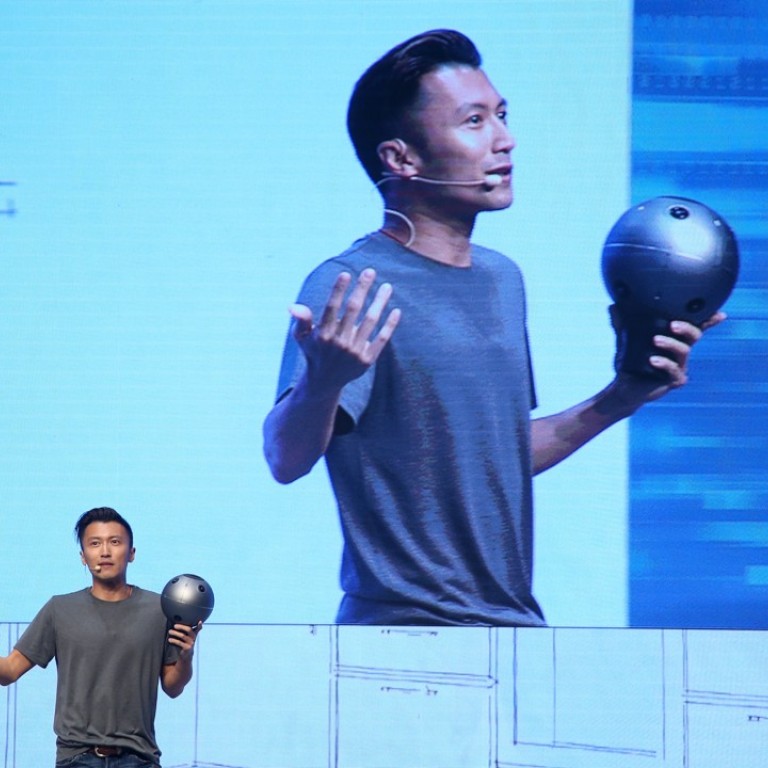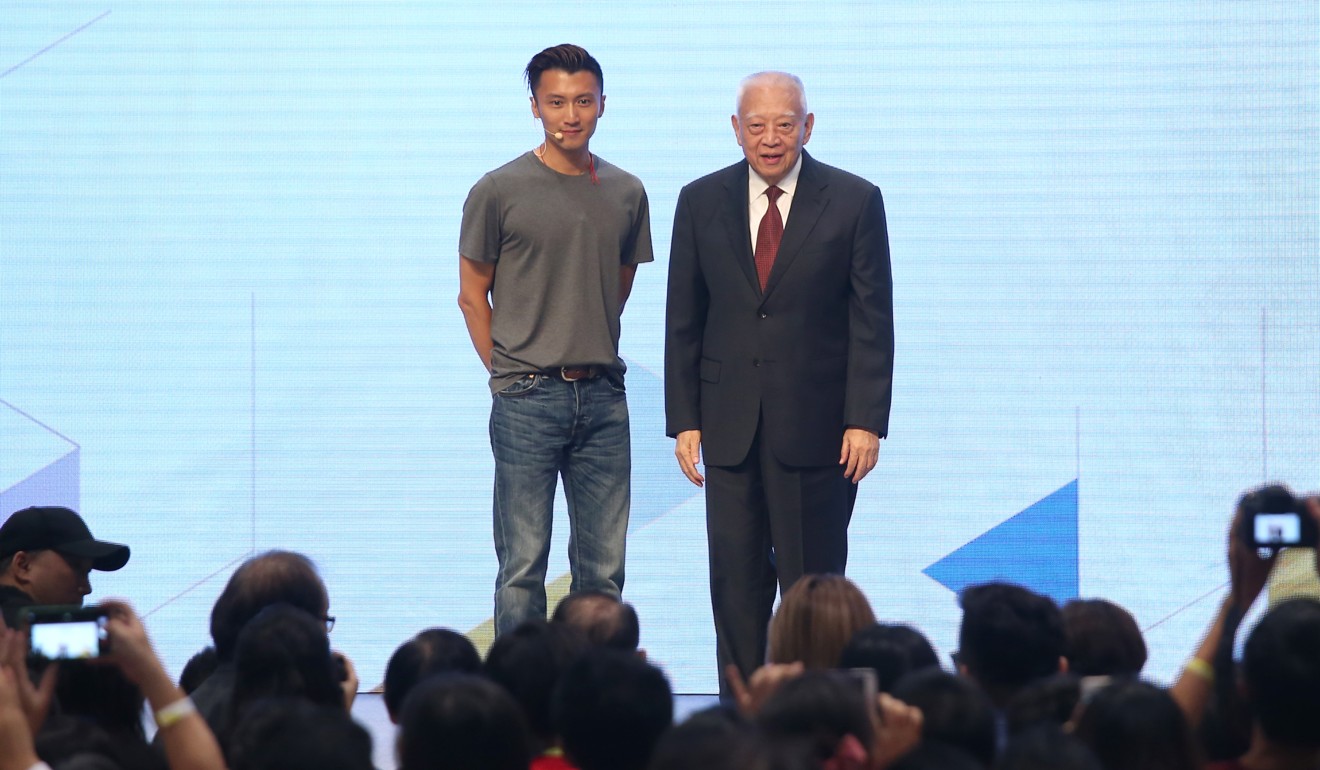
Actor and entrepreneur Nicholas Tse looks to boost young local tech industry
Tse wants to help bright young minds have their creations brought to a wider market
Hong Kong A-list actor and young entrepreneur Nicholas Tse Ting-fung is inviting bright and original ideas from the city’s young tech enthusiasts, with his new project that aims to help “Hong Kong-created” products to go on the world stage.
Tse said Hong Kong people were too used to making money by speculating on the stock and the property markets and they needed a mindset shift.
Teaming up with a group of funds and local organisations that promote innovation and technology, Tse said they would guide the young people step by step to turn their ideas into products that sell in China and beyond.
The movie star and entrepreneur surprised the 300-strong audience with the unexpected announcement of his new project at a seminar on innovation on Wednesday where he had been expected to share the secrets of his business success.
Tse, a pop singer and movie actor, ventured into the business world by founding Post Production in 2003. The company provides special effects and animation services on films, TV shows, music videos and advertisements, as well as internet and mobile applications content.

Tse said Hong Kong had lagged behind the world in innovation.
“From today, I along with [the funds] will open a panel to receive your ideas. Your ideas, coupled with our ways [of making things successful], will turn your dreams into products. Step by step, we shall make it come true,” Tse addressed the audience, mainly comprised of young people.
“Your ideas, coupled with our ways [of making things successful], will turn your dreams into products. Step by step, we shall make it come true”
“We shall filter your ideas. If we think an idea is feasible, we shall try to turn that idea into a product. And I will follow it up. I will help promote it by using the product in my shows ... there is chance to make it a successful business.”
He urged young people not to be afraid of failure, but try to conquer anything that failed them.
He shared his secret of success: “I hate to find that there is something that I can’t manage to succeed in. So, in whatever sector, I want to become the number one.”
A spokesman for Tse said the project was in planning stages and additional information was unavailable at this stage.
Co-sponsoring Tse’s scheme will include Hong Kong X, Alibaba Entrepreneurs Fund, Cocoon, Tuspark Global Network, PMQ, Cyberport, and Hong Kong Science and Technology Parks Corporation.
Alibaba Entrepreneurs Fund was founded by Alibaba Group, which owns the South China Morning Post.
During his 60-minute Steve Jobs-style address, Tse said Hong Kong people did not like to invest time in research and development.
“I think it is because we are too good at speculating stocks, property ... so, why would we bother to invest time in research and technology?
“We are too often told that our country has 1.3 billion people and so long as each one of them give you HK$1, you will get rich. Why should we bother to think of innovation?
“We can’t afford to think that way now. That was before. Now you have to be creative, be original.
“We have to make something of our own, something original,” said Tse.
“With technology, everything is possible now,” said Tse. He recalled the days when he a newcomer in the movie industry in the 1990s, films were shot at 24 frames per second, which translated into a cost of about HK$60 for each second of image.
“Now films are not used. Everything is stored in a memory card, which you can erase and then reuse, and thus saving much cost.”
Tse cited Finland, where the population is smaller than that of Hong Kong, but it made Nokia phones that dominated the world market for most of the late 1990s and early 2000s.
“Finland’s population is smaller than that of Hong Kong. But they had Nokia. So, do we have any excuse? No,” Tse told his audience.
Tse’s session was among a highlight at this year’s InnoTech Expo, organised by Our Hong Kong Foundation, which is being held at the Hong Kong Convention and Exhibition Centre until next Monday.
Our Hong Kong Foundation chairman, Tung Chee-hwa, who was also among the audience in Tse’s session, praised Tse as a role model of Hong Kong’s young people.
Tung, Hong Kong’s first leader after the city’s return to Chinese rule in 1997, is now a vice-chairman of the Chinese People’s Political Consultative Conference, the nation’s top political advisory body.

